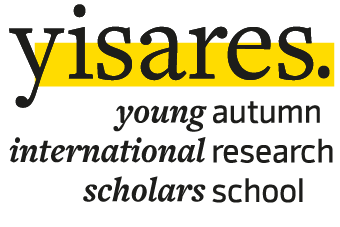Rethinking Extractivist Capitalism
October 2021, University of Bremen
Venue: online
Deadline for applications: 1 June 2021
Extractivism – traditionally understood as the over-exploitation of natural resources – has led to irreversible environmental damage and the destruction of livelihoods across the globe. While these forms of primitive accumulation have historically been key to colonial exploitation of the Global South, we are currently witnessing an expansion of multiple forms of extractivism. Reimagined as a developmental and even emancipatory strategy, extractivism has increasingly been implemented by states, private firms, local and traditional authorities, and networks of experts in order to capture and distribute high rents, while in fact deepening legacies of colonial dependencies. However, extractivism has also extended beyond the plundering of raw materials to cultural or non-material resources, e.g. in the form of extensive tourism, or “data-mining”. Hence, today, extractivism has come to signify a global logic of current capitalist accumulation and valorisation which differs decisively from industrial capitalism. To secure the appropriation of rent, these different forms of extractivism are flanked by various violent and authoritarian state practices, often reinstating racist and (settler) colonial orders, erasing indigenous claims to land, large-scale dispossession and displacement, severe human rights violations, unsafe labour conditions, surveillance, and forced migration.
The six-day interdisciplinary Autumn Research School offers participants an outstanding programme with faculty members including Deval Desai, Michael Flitner, Michi Knecht, Sandro Mezzadra, Martin Nonhoff, Shalini Randeria, Ranabir Samaddar, Klaus Schlichte, Ingo H. Warnke and Ruth Wodak. It is composed of six content modules, plus a hands-on research design workshop module and includes lectures, Q&A-sessions, interactive small-group roundtable sessions, micro-group sessions, and plenary debate.
Due to the COVID-19 pandemic the research school will be held online. In order to ensure a productive learning and working atmosphere, the programme is divided into a total of three sets of two consecutive days each: 9-10, 15-16 & 29-30 October 2021.
We invite applications from outstanding MA-students, PhD-candidates and postdoctoral researchers in political, social or cultural science, geography, linguistics, law, international relations or related disciplines. Participants are selected on the basis of the quality of their applications, which includes a letter of motivation, an academic CV and a brief research proposal connected to the topic of the autumn school.
Please, find the online application form and further information on our website yisares.uni-bremen.de or email us via yisares[at]uni-bremen.de.
The Autumn School is organised by U Bremen Excellence Chair Prof. Dr. Shalini Randeria, her Research Group „Soft Authoritarianisms“, her hosts Prof. Dr. Michi Knecht and Prof. Dr. Ingo H. Warnke, and the collaborative research platform Worlds of Contradiction.
Due to this generous funding by the University of Bremen and Worlds of Contradiction, participants will not have to pay fees.

